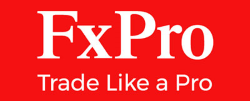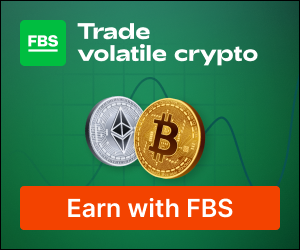For over a decade, FxScouts Kenya has been reviewing forex brokers and provided in-depth analyses. Our extensive research and unique testing methodology ensures that all broker reviews are accurate and fair with hundreds of thousands of data points generated annually. Since 2012, we’ve tested over 180 brokers across global and Kenyan markets. Our team of professionals are frequently cited in global and regional media, shaping market conversations and trends.
-
Best Forex Brokers
Our top-rated Forex brokers
-
Brokers for Beginners
Start trading here
-
Islamic Account Brokers
Best accounts for Muslim traders
-
Forex Demo Accounts
Learn to trade with no risk
-
No-deposit Bonuses
Live trading with no deposit
-
KES Trading Accounts
Save on conversion fees
-
ECN Brokers
Trade with Direct Market Access
-
Lowest Spread Brokers
Raw spreads & low commissions
-
Market Maker Brokers
Fixed spreads & instant execution
-
MetaTrader 4 Brokers
The top MT4 brokers in Kenya
-
MetaTrader 5 Brokers
The top MT5 brokers in Kenya
-
TradingView Brokers
The top TradingView brokers
-
cTrader Brokers
The top cTrader brokers in Kenya
-
All Trading Platforms
Find a platform that works for you
-
Copytrading Brokers
Copy professional traders
-
Forex Trading Apps
Trade on the go from your phone
75-90% of retail traders lose money trading Forex and CFDs. You should consider whether you understand how CFDs and leveraged trading work and if you can afford the high risk of losing your money. We may receive compensation when you click on links to products we review. Please read our advertising disclosure. By using this website, you agree to our Terms of Service.
- Pepperstone - Low Trading Costs and 24/7 Customer Support
- HFM - Best Regulated Broker
- Exness - High Leverage KES Account
- FxPro - Best No Dealing Desk (NDD) Broker
Best Forex Brokers with KES Accounts 2024
Broker | Broker Score | Official Site | Regulated By | Min. Deposit | Beginner Friendly | Cost of Trading | EUR/USD - Standard Spread | Compare |
|---|---|---|---|---|---|---|---|---|
 | 4.61 /5 Read Review | Visit Broker > 89%74- of retail CFD accounts lose money |     | USD 0 | Excellent | USD 10 | 1.00 pips | |
 | 4.53 /5 Read Review | Visit Broker > 72.90% of retail CFD accounts lose money |     | USD 0 | Excellent | USD 10 | 1.00 pips | |
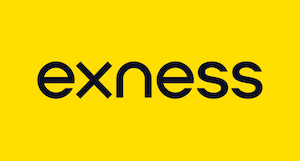 | 4.32 /5 Read Review | Visit Broker > 71.67% of retail CFD accounts lose money |      | USD 3 | Standard | USD 7 | 0.70 pips | |
4.39 /5 Read Review | Visit Broker > 71.58% of retail CFD accounts lose money |      | USD 100 | Excellent | USD 14 | 1.40 pips |
Pepperstone – Low Trading Costs and 24/7 Customer Support
Founded in Australia in 2010, Pepperstone is a globally renowned broker, regulated by the Kenyan CMA (Capital Markets Authority).
Pepperstone offers customers low costs with extremely tight spreads, starting at 1.00 pips(EUR/USD) on its Standard Account. For those who prefer classic ECN trading, the Razor Account has low commissions and spreads averaging at just 0.10 pips on the EUR/USD. Neither account has a required minimum deposit.
Pepperstone also offers 24/7 support, which is unusual for an industry where the norm is 24/5. The customer service team is available to help answer questions should you need assistance with either technical or account-based queries.
HFM (HotForex) – Best Regulated Broker
Regulated by the Kenyan CMA, HotForex is a firm favourite among Kenyan traders looking STP execution and strong international regulation.
- Regulated by the FSCA, FCA, and CySEC
- KES Accounts
- STP execution
- Tight spreads and high leverage
- Great value Micro Account
- Detailed market analysis and dedicated customer service
Strong Regulation
HFM is regulated by CySEC in Europe, the FCA in the UK, the South African FSCA, and the Kenyan CMA – providing local protection for Kenyan traders. No-Dealing Desk (NDD) STP execution means tight spreads for all trades. Leverage is flexible – all the way up to 400:1 on the Micro Account, where the minimum deposit is 5 USD and spreads start at 1 pip on the EUR/USD.
Exness – High Leverage KES Account
Fees and Trading Conditions: Exness’ Standard Account on MT4 requires a minimum deposit of 10 USD and has average spreads on the EUR/USD of 1 pip. This account is a good, low-risk opportunity for beginner Forex traders to get experience in the live market. The Pro Account on MT4 also has low trading costs, offering commission-free trading with spreads averaging 0.6 pips EUR/USD – but the minimum deposit is 200 USD. All accounts feature high leverage up to 2000:1.
Regulation and Security: Founded in 2008, Exness Group has been FSCA-regulated since 2020 (FSP 51024) and offers trading on 100+ Forex pairs, cryptocurrencies, stock CFDs, indices and commodities. Currently, Kenyan trading accounts are regulated by the Seychelles FSA, which does not require brokers to offer negative balance protection and trader’s funds may not be kept in Kenyan banks.
FEATURES
- Nine account types for both beginners and more experienced traders
- KES Accounts for Kenyan clients, no conversions fees from KES bank accounts
- Automated instant withdrawal system, with free withdrawals to e-wallets.
- TC.Technical Analysis indicator from the international analytical agency Trading Central
FxPro – Best No Dealing Desk (NDD) Broker
FxPro’s NDD execution model is available on MT4, MT5, cTrader and its browser-based platform. FxPro recommends an opening deposit of 7000 Rand, though accounts can be opened with as little as 10.000 Shilling. Features traders will like at FxPro are:
- Ultrafast NDD Execution and Platform Choice
- Tight Spreads
- Free Funding via the FxPro Wallet
Fast Execution | No Dealing Desk
FxPro offers NDD on all trades and most are executed in less than 10 milliseconds. Only 9% of orders received negative slippage. A perfect environment for scalpers and automated trading in volatile markets.
Tight Spreads | All Three Major Platforms
FxPro has three accounts, one for each of the major platforms: MT4, MT5 and cTrader. Both the MT4 and MT5 accounts offer commission-free trading while the cTrader account has a 4.50 USD commission per trade but raw spreads – down to 0.3 pips on the EUR/USD. In addition, FxPro has its own FxPro (EDGE) web platform for those that want to keep things simple.
FxPro Wallet | Free Deposits and Withdrawals
The FXPro Wallet is kept separate from the trading account, so will not be considered when calculating margin or leverage – making it a risk management tool. All deposits and withdrawals from the FxPro Wallet are free of charge via all methods.
Why Should Traders Use FxPro?
FxPro offers its clients a choice of platform and then provides the execution and simplicity that many traders crave. Fast NDD execution, tight spreads, simple funding, and complete transparency.
What are the Advantages of Having a KES Account?
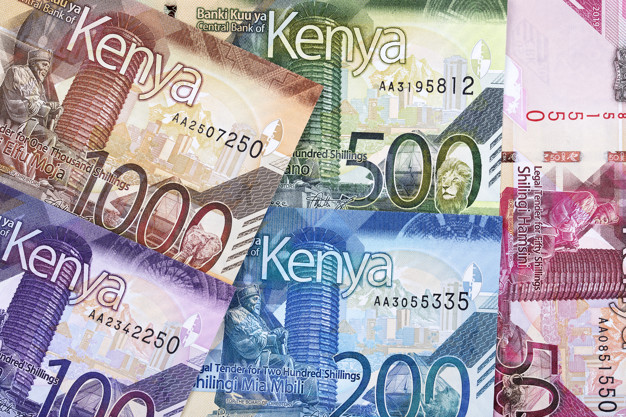
The greatest advantage of having a KES Account is that you will avoid currency conversion fees when funding your trading account.
If you have a USD trading account, conversion fees or the volatile KES/USD exchange rate can take a bite out of your profits before you even start trading. Most international brokers will also give you a poor exchange rate from KES to USD.
KES Accounts will not have conversion fees on withdrawals and deposits
KES accounts are also good for traders who use bank transfers or credit cards to fund their accounts. If you ask your bank or credit card company to fund a USD account, you can lose 7-10% of the value of your deposit in conversion charges and added fees. Fund transfers are also much quicker between local banks, so deposits and withdrawals can generally be made within 24 hours, and often happen instantly.
Funding KES Accounts is much faster than USD accounts
Another benefit of having a KES account is that your funds will be kept in a Kenyan bank and will be accessible if your broker declares bankruptcy. With a USD account at an international broker, this will not be the case: Even if your funds are kept in a segregated account, they will be kept in a segregated account in another country.
KES Accounts are usually held in Kenyan banks
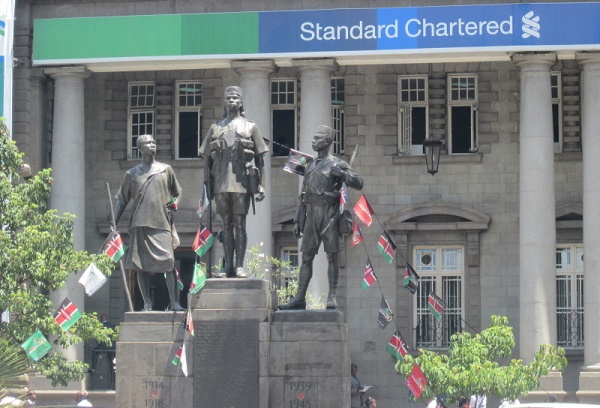
How to choose the best KES Account
Choosing a broker with the best KES account is much the same as choosing any Forex broker. It is essential to look at the detail of each broker to find out what differentiates them from each other. When looking for a KES account broker, it is important to judge them on the following areas:
Regulation
Regulation is the most important aspect of selecting a broker with a KES account, as it is with any Forex broker. You want to make sure your funds are secure and kept in a segregated account and that your broker maintains a fair trading environment.
All brokers with KES accounts will be regulated by the CMA, as KES accounts will be held in Kenyan banks and will be governed by Kenyan laws. The best international brokers tend to be regulated by the FCA, CySEC or ASIC as well as the FSCA.
The best regulators in the world are the FCA, CySEC and ASIC
Alongside CMA regulation, brokers who offer KES accounts will need a licence from the Central Bank of Kenya to provide financial products denominated in Shilling – this extra licencing requirement adds another layer of protection for local traders.
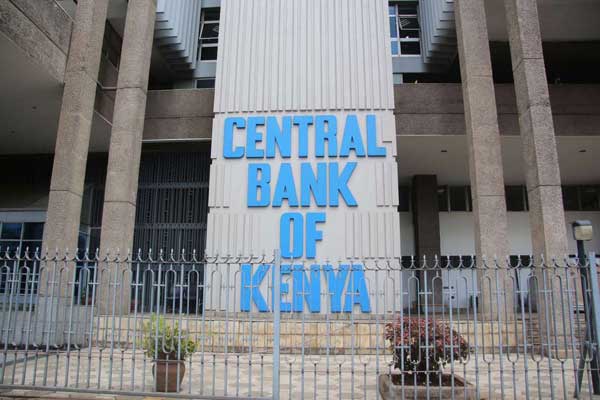
Trading Conditions
This includes what kind of spreads are available, how much leverage is offered, and how many currency pairs are available. These factors will directly impact your profit or loss.
Trading conditions are particularly important for traders with KES accounts as your trading balance will be denominated in Rand. This means that when you are open a trade with the base currency in anything other than KES (USD/JPY, EUR/USD, AUD/USD, etc.) you KES balance will be converted in the base currency, it will be converted back again to KES once you close the trade. This can be expensive if you plan to hold multiple large trades open simultaneously.
When trading, your account currency is converted to the base currency of an FX pair
If you are planning to trade the USD/KES be aware that this is considered an exotic pair and spreads are much wider than for major pairs (such as the USD/GBP), often as wide as 80 or 100 pips.
Trading Platforms
Another factor to consider is the choice of trading platforms on offer. Most brokers will offer MT4, but some brokers will offer multiple platforms – each with their own advantages. Many brokers also have their own platforms, these are often easier to use for beginners, though may not have the automation options that exist on downloadable applications like MT4, MT5 and cTrader.

Broker’s own trading platforms are often easier to use for beginner traders
Minimum Deposit
For KES Accounts, your minimum deposit will always be in Shilling. How much you are required to deposit changes for each broker and often changes between account types offered by the same broker, with higher minimum deposits often linked to better trading conditions.
Accounts with higher minimum deposits have better trading conditions
Deposit and Withdrawal Methods
All brokers accept traditional payment types such as debit/credit cards and bank transfers, many accept online payments through Skrill and Neteller.
Always check for deposit and withdrawal fees before you sign up with a broker
Always check for deposit and withdrawal fees, a few brokers charge a percentage fee for some withdrawal methods, making large drawdowns expensive.
Education and Market Analysis
Most brokers with KES accounts will offer Forex education and market analysis. If you are a beginner trader, the quality of this educational and research material should be an important factor in your decision.
Customer Service
Another important factor to consider when opening a KES account is the quality of customer service offered by a broker. Brokers with KES accounts tend to have local offices and can offer local support – which can make all the difference for beginner traders.
Brokers with local customer support will have a better understanding of your needs
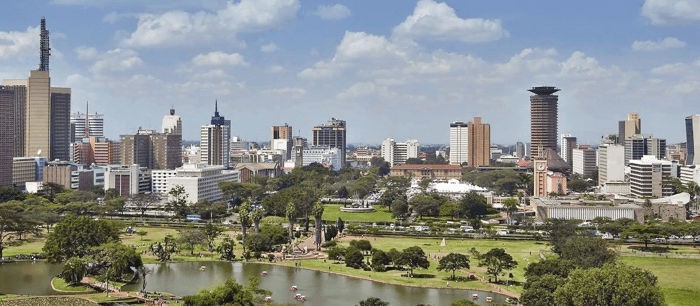
Brokers with local customer support have a better understanding of the issues new traders in Kemnya have when setting up their accounts. They also can offer support in multiple languages, including Swahili.
Why are KES Accounts so Rare?
Forex brokers who offer KES accounts are rare, and most brokers still only offer USD or EUR accounts. This is mainly due to a lack of KES liquidity providers. Forex brokers with KES accounts need access to large amounts of Shilling, or Shilling liquidity pools, to cover their clients’ trades. Currently, there are just not that many banks in Kenya willing to provide the necessary funding.
Broker with KES accounts need the support of large Kenyan banks
Another reason for the lack of KES accounts is that most international brokers have their costs priced in USD. By converting large sums of USD to finance KES accounts they would open themselves up to huge exchange rate risk. They would lose money every time the KES devalued against the USD, which has been a common problem recently.
International brokers with KES accounts lose money when the Rand devalues
Should I Use a KES Account?
Kenyan traders can use a KES account if they wish to avoid conversion fees and withdrawals and deposits will be faster.
Some traders want a USD account, especially traders who keep many positions open simultaneously. With this approach to trading with a KES account, the fluctuations in the exchange rate would impact your profit margins.
One thing to keep in mind with a KES account is whether your broker charges commission on trades – most ECN brokers do – and what currency the commission is charged in. If you have a KES account and are being charged a USD commission for every trade, you will be losing a small amount of every trade in currency conversion. This can add up over time and become quite expensive. Most brokers with KES accounts will charge the commission at a fixed rate in KES but do check first.
Forex Risk Disclaimer
Trading Forex and CFDs is not suitable for all investors as it carries a high degree of risk to your capital: 75-90% of retail investors lose money trading these products. Forex and CFD transactions involve high risk due to the following factors: Leverage, market volatility, slippage arising from a lack of liquidity, inadequate trading knowledge or experience, and a lack of regulatory protection. Traders should not deposit any money that is not considered disposable income. Regardless of how much research you have done or how confident you are in your trade, there is always a substantial risk of loss. (Learn more about these risks from the UK’s regulator, the FCA, or the Australian regulator, ASIC).
Our Rating & Review Methodology
Our State of the Market Report and Directory of CFD Brokers to Avoid are the result of extensive research on over 180 Forex brokers. These resources help traders find the best Forex brokers – and steer them away from the worst ones. These resources have been compiled using over 200 data points on each broker and over 3000 hours of research. Our team conducts all research independently: Testing brokers, gathering information from broker representatives and sifting through legal documents. Learn more about how we rank brokers.
Editorial Team

Chris Cammack
Head of Content
Chris joined the company in 2019 after ten years experience in research, editorial and design for political and financial publications. His background has given him a deep knowledge of international financial markets and the geopolitics that affects them. Chris has a keen eye for editing and a voracious appetite for financial and political current affairs. He ensures that our content across all sites meets the standards of quality and transparency that our readers expect.

Alison Heyerdahl
Senior Financial Writer
Alison joined the team as a writer in 2021. She has a medical degree with a focus on physiotherapy and a bachelor’s in psychology. However, her interest in forex trading and her love for writing led her to switch careers, and she now has over eight years experience in research and content development. She has tested and reviewed 100+ brokers and has a great understanding of the Forex trading world.

Ida Hermansen
Financial Writer
Ida joined our team as a financial writer in 2023. She has a degree in Digital Marketing and a background in content writing and SEO. In addition to her marketing and writing skills, Ida also has an interest in cryptocurrencies and blockchain networks. Her interest in crypto trading led to a wider fascination with Forex technical analysis and price movement. She continues to develop her skills and knowledge in Forex trading and keeps a close eye on which Forex brokers offer the best trading environments for new traders.






























